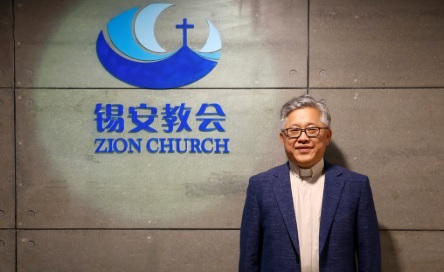Analysis by WorldTribune Staff, October 12, 2025 Real World News
Tariffs, technology and strategic weapons are the visible chessboard pieces of the undeclared war between the United States and communist China.
Less visible is the “cognitive warfare” between the two power as well as the “Information War” and the ongoing intelligence war of nerves all of which have been dominated by the Chinese in recent decades as chronicled by Geostrategy-Direct.com.
But it is the spiritual war that bedevils Chinese Communist Party atheists. How can ideological materialists control what they can’t see?

Underlying Xi Jinping’s reported brinkmanship within the CCP and with President Donald Trump is not only an economy in free fall but an internal crisis over which he has little control: Home churches.
Unreported millions of Chinese frequent underground faith networks even as Xi Jinping regime has intensified its crackdown on organic Christianity and practitioners of traditional Buddhist and Taoist disciplines.
The threat? Faith without fear undermines the authority, legitimacy and power of the Chinese Communist Party.
While his regime and party ban religions and faith groups that do not bow to central authority, Christianity has flourished underground. The Falun Gang, which publishes the culturally conservative and anti-communist Epoch Times newspaper, penetrated the Politburo Standing Committee of the CCP before being banned and persecuted. Yet it and continues to expand its reach and influence.
Ezra Jin persisted for years in building one of China’s largest underground Christian churches, with branches in 40 cities. Online prayer groups he helped lead at times reached 10,000 people.
Even after his wife relocated to the safety of the U.S. to be with their three children — all American citizens — Jin stayed behind in China to lead Zion Church.
“His flock needed him,” said his daughter, 31-year-old Grace Jin Drexel, who works as a U.S. Senate staffer and lives near Washington, DC, the Wall Street Journal reported on Oct. 12.
“Zion Church was raided in 2018 and its sanctuary in Beijing was shuttered. Jin and its other leaders increasingly took their work online, while establishing more than 100 smaller-scale branches across the country,” the report noted.
“The hybrid model flourished, to the dismay of Chinese authorities.”
Jin’s detention in recent days by Chinese authorities, alongside more than 20 others associated with Zion Church either in custody or missing, marks an escalating broadside against Christianity in China.
As of Sunday, it was unknown whether Jin had been formally charged by authorities. China’s Ministry of Public Security failed to respond to a request for comment.
Sean Long, a pastor with Zion Church living in the U.S., said the church expected Jin would face charges of illegally disseminating religious information online, and family members were bracing for the possibility of a lengthy prison term.
“They are afraid of my husband’s influence,” Jin’s wife, Chunli Liu, told the Journal. Liu is a Chinese national and two of her children are Americans through being born in the U.S., while her daughter, Grace, is naturalized through marriage.
Bob Fu, founder of U.S.-based ChinaAid Association, a nonprofit group that advocates for religious freedom in China, said the recent crackdown was “the most extensive and coordinated wave of persecution” against churches like Jin’s in more than four decades.
Jin, 56, came to Christianity in the aftermath of the 1989 Tiananmen Square massacre, when as a student in Beijing he joined pro-democracy protests that the military ultimately violently suppressed.
Over time, he increasingly opposed the state’s restrictions on religion, founding Zion Church in Beijing in 2007, one of many unregistered ministries—often dubbed “house churches” or “underground churches” — that were surging in popularity nationwide.
“We have a religious belief just like hungry people have a need to eat something,” Jin told the Wall Street Journal in 2011. “The government doesn’t need to and also doesn’t have the right to decide what you eat, whether you should eat or not.”
Jin’s connection to the U.S. through his family “further complicates U.S.-China relations,” the Journal noted. His detention comes just weeks before a possible meeting between President Donald Trump and Chinese and Xi, making the pastor a potential bargaining chip in bilateral negotiations.
A flare-up in trade tensions precipitated by Beijing in recent days has cast doubt on whether a Trump-Xi summit will go ahead.
As Trump posted on Truth Social:
